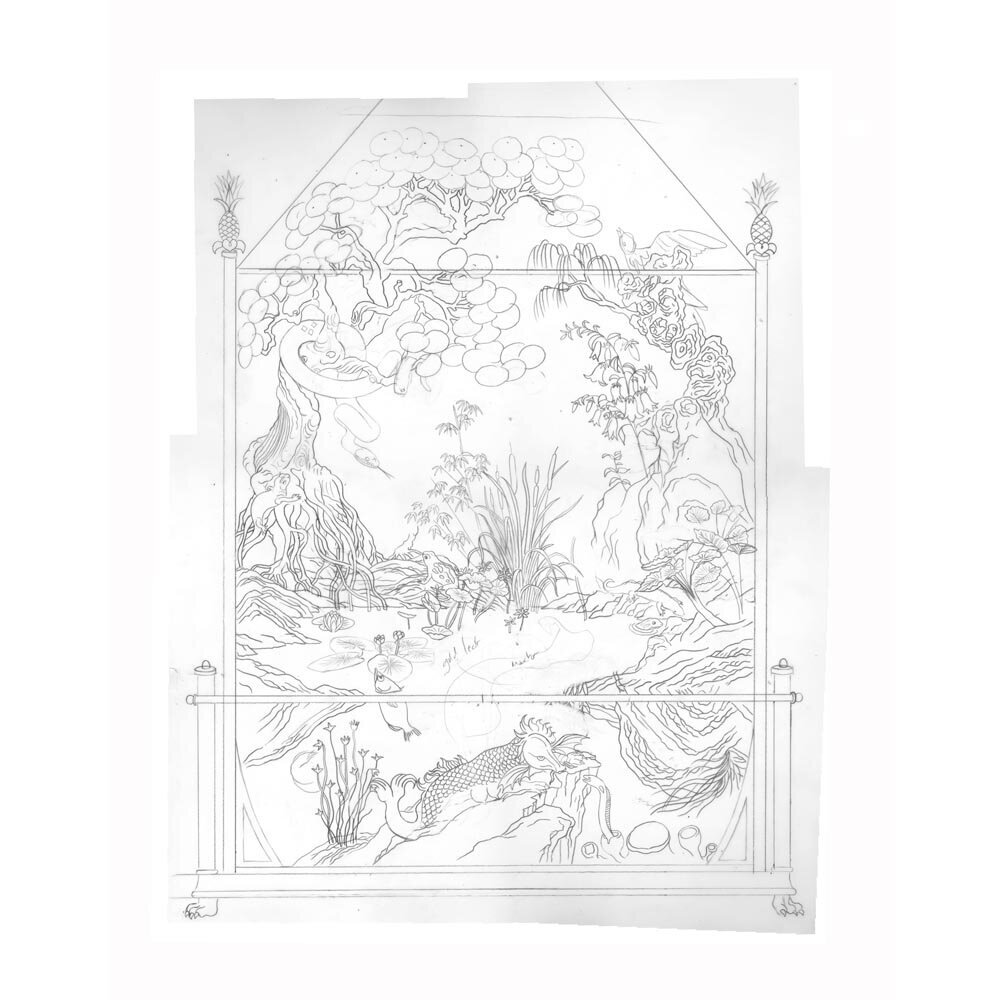 Image 1 of
Image 1 of


Nikki Grange
£0.00
Nikki Grange creates work exploring the contact trace of objects.
Familiar items become subjects as Grange searches behind the object for the trace of its owner(s). She uses photography, drawing, frottage, casting and print to record the use, meaning and memory of everyday objects. By focusing on seemingly inconsequential items, she invites the viewer to consider the objects they keep, inherit, treasure and pass on.
Grange’s recent series is inspired by the artist’s father, who passed away a year ago. Spending time with his belongings was part of the grieving process as Grange handled, photographed, sketched and logged the objects found. Memories of her father were challenged as she considered what he had held onto; she gained insights into his life before and beyond fatherhood. The resulting print works are an honouring of her father and a record of his physical trace. They also speak to the human need to collect and remember – that these collections are more than simply the inability to discard.
Grange has a degree in contemporary media practice and a career in art gallery and museums. Management of art and social history collections has fostered understanding of how objects can hold a trace of the maker and subsequent owners, that telling the story of our past sooths us, that ‘things’ help us remember. She suggests historical and everyday objects invite connection between individuals; across time and memory. This experience is the foundation in her art practice.
Quantity:
Add To Cart
Nikki Grange creates work exploring the contact trace of objects.
Familiar items become subjects as Grange searches behind the object for the trace of its owner(s). She uses photography, drawing, frottage, casting and print to record the use, meaning and memory of everyday objects. By focusing on seemingly inconsequential items, she invites the viewer to consider the objects they keep, inherit, treasure and pass on.
Grange’s recent series is inspired by the artist’s father, who passed away a year ago. Spending time with his belongings was part of the grieving process as Grange handled, photographed, sketched and logged the objects found. Memories of her father were challenged as she considered what he had held onto; she gained insights into his life before and beyond fatherhood. The resulting print works are an honouring of her father and a record of his physical trace. They also speak to the human need to collect and remember – that these collections are more than simply the inability to discard.
Grange has a degree in contemporary media practice and a career in art gallery and museums. Management of art and social history collections has fostered understanding of how objects can hold a trace of the maker and subsequent owners, that telling the story of our past sooths us, that ‘things’ help us remember. She suggests historical and everyday objects invite connection between individuals; across time and memory. This experience is the foundation in her art practice.
Nikki Grange creates work exploring the contact trace of objects.
Familiar items become subjects as Grange searches behind the object for the trace of its owner(s). She uses photography, drawing, frottage, casting and print to record the use, meaning and memory of everyday objects. By focusing on seemingly inconsequential items, she invites the viewer to consider the objects they keep, inherit, treasure and pass on.
Grange’s recent series is inspired by the artist’s father, who passed away a year ago. Spending time with his belongings was part of the grieving process as Grange handled, photographed, sketched and logged the objects found. Memories of her father were challenged as she considered what he had held onto; she gained insights into his life before and beyond fatherhood. The resulting print works are an honouring of her father and a record of his physical trace. They also speak to the human need to collect and remember – that these collections are more than simply the inability to discard.
Grange has a degree in contemporary media practice and a career in art gallery and museums. Management of art and social history collections has fostered understanding of how objects can hold a trace of the maker and subsequent owners, that telling the story of our past sooths us, that ‘things’ help us remember. She suggests historical and everyday objects invite connection between individuals; across time and memory. This experience is the foundation in her art practice.





